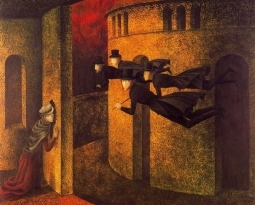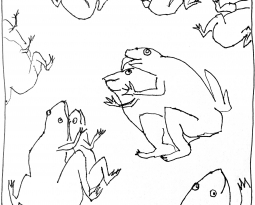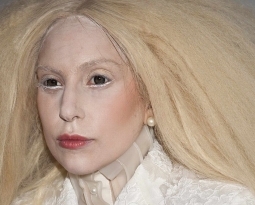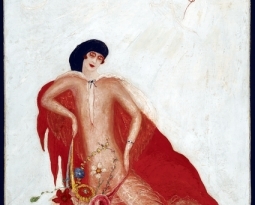17th thread: At Sea




Their thighs and shoulders showed under their torn garments, their skin burned by the sun. It didn’t worry them. Mama would say, don’t look. At eleven, you are not a child anymore. Come sit with your sisters. The men uncoiled ropes, climbed up the mast, unfurled sails, patched the oars. Mama would say, stop looking, it will do you harm. My sisters could not stop crying. I did not cry, I was so glad we had left. My mother lectured me, once again.
 – If our king had not felt the need to invade the whole world, from one Ocean shore to the other, we would not be on our way to some uncivilized place crawling with scarabs. Your father will enjoy a much better position, but what kind of advantages will I have in a foreign city? At home, everyone knows our family and the prominent place it has held since the founding of the city, without any foreign or commoner blood having ever tainted it. Nothing matters as much, wealth nor connections, nor education or clairvoyance. When you talk, your accent and the turn of your sentences tell without doubt that you were brought here with the attributes of your rank. The superiority of your upbringing will be lost in another city. Why do you think the worst punishment of our tribunals is exile? At least, if we were going to a nearby territory, but instead we will land in a different continent, where, I am told, servants will not speak our language, and are dark of skin, and the ground is flooded year after year. I am disheartened. Every day, before we left, I made offerings to be able to stay. And when we arrive, I will sacrifice for our fast and safe return, even if you do not understand.
– If our king had not felt the need to invade the whole world, from one Ocean shore to the other, we would not be on our way to some uncivilized place crawling with scarabs. Your father will enjoy a much better position, but what kind of advantages will I have in a foreign city? At home, everyone knows our family and the prominent place it has held since the founding of the city, without any foreign or commoner blood having ever tainted it. Nothing matters as much, wealth nor connections, nor education or clairvoyance. When you talk, your accent and the turn of your sentences tell without doubt that you were brought here with the attributes of your rank. The superiority of your upbringing will be lost in another city. Why do you think the worst punishment of our tribunals is exile? At least, if we were going to a nearby territory, but instead we will land in a different continent, where, I am told, servants will not speak our language, and are dark of skin, and the ground is flooded year after year. I am disheartened. Every day, before we left, I made offerings to be able to stay. And when we arrive, I will sacrifice for our fast and safe return, even if you do not understand.
It was as if I were betraying her by enjoying the trip. She would look at me in distress, this alien creature that couldn’t possibly have been born of the same lineage as my sisters, that must have been transformed by the interference of a demon. I relished even the simplicity of our daily life, the narrow cot, the modest cushions, the meals of nuts, olives and water tinted by wine.
When we reached a port, the men would go ashore, and we remained on ship. By raising myself over the rail, I could see the odd buildings of wood, which were certainly less beautiful than in our city. Men wore funny clothes. Women worked. They sold food, cleaned fish, mended nets. When they bent, a breast sometimes gushed from their clothes, which they would put back briskly, as if it were just another fish.
Then we would sail off, the port becoming smaller and smaller. I was sad that I would probably never see it again, until we reached another port, where I could peek at yet different houses, different people with odd faces and customs. Finally we left the coast to cross the sea. The land disappeared, only the sun, the sky and the water surrounded us. The world I had known, the world of my childhood, was gone, with its temples and heroes and laws. I was glad. I would have liked never to arrive, but Papa was waiting.






Beautiful story and great thread drawings too!
Curious where this literature journey will take you further…
(& have also an older video-installation entitled “At Sea I-III”).
Beautiful.. Love the drawings, elegant ease.
Thanks, means a lot to me…
Arabella makes us understand the plight of displacement and everything that goes with it. Her writing is truly insightful and I can’t wait to read the next thread.
Thanks for the comment. I’m excited about the next story: a beautiful ancient myth about mother’s love.
I liked the journey this took m eon.
Delighted!
I also thought of the refugees coming to Italy, and how this girl is probably sailing in the opposite direction… lovely. The drawings are wonderful too.
She is making exactly the inverse journey! But in very different circumstances, as she is going to a newly conquered land. She goes where she is told to go, but at least, for the duration of the trip, she gets out of the “feminine quarters”. Also, and that’s for the next entries, living in a colony historically meant less social pressure, and more freedom for these women. While I don’t consider this project to be historical fiction – maybe herstorical fiction!!-, I have read quite a lot to make sure it makes some sense.
Beautiful, imagistic writing. I tried to imagine what might be the inner poetic landscape of a young Syrian migrant woman. One would never think of migration that way, right?
You’re right. And in fact, that’s quite perceptive of you, because my character and the Syrian migrant would have been seeing the same landscape, in reverse directions. However, despite Western misconceptions, the young Syrian woman would not have been locked in, the way a young girl would have been in the European Antiquity, when her only chances to get out of the house were likely to be religious festivals, funerals… and migration!
Some of my favorite books do what Arabella Hutter is doing here — halfway pretending to be a child/young adult book, while being deeply profound. Anyone who has read the great Icelandic writer, Halldor Laxness’s “The Fish Can Sing” might get this concept. Or, if you’re American, “Catcher in the Rye,” which is always taught to 16 year olds, but is so much more than a young adult book. And while each piece stands alone, it also pushes you forward gently……this is simply wonderful stuff….
Thank you! Of course, I’ve read Catcher in the Rye which I admire, but I was lucky not to be “taught” it in school, and had instead to read Racine! And will look into Laxness, a great title.
Great stories with interesting interactions of the characters! And such beautiful graphics! They remind me a bit of Niki de Saint Phalle, one of my favorite artists! I will definitely continue reading!
I love Niki de Saint Phalle! Actually, I will look for some of her work to integrate in this project, thanks for reminding me of her. And thanks for the comments!